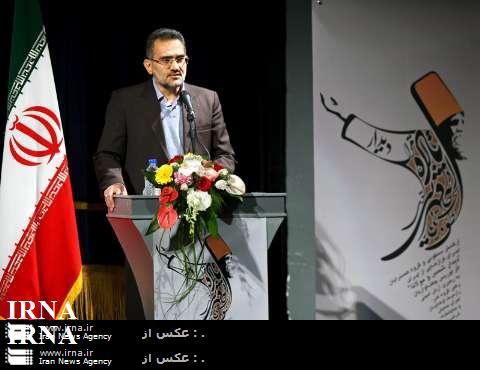ID :
272349
Sat, 01/26/2013 - 07:16
Auther :
Shortlink :
https://oananews.org//node/272349
The shortlink copeid
Heavenly Color Of Rumi Poetry Made It Eternal: Culture Min.

Tehran, Jan 26, IRNA -- Heavenly color of poetry of the great Persian mystic and poet Molana Jalal ad-Din Rumi (1207-1273) made him universal and eternal, Culture Minister Seyyed Mohammad Hosseini said on Thursday.
He made the remarks in a seminar held in Tehran to commemorate the great Iranian poet.
Iranian President Mahmoud Ahmadinejad as well as many cultural activists attended the seminar.
“Mathnawi Manavi as the most famous literary work of Rumi is a source of knowledge and theosophy for the readers; Rumi’s Divan-e Shams is also a great source of love.”
Molana Jalal ad-Din Rumi who is popular in the English-speaking world simply as Rumi was a 13th-century Persian Muslim poet, jurist, theologian, and Sufi mystic. Iranians, Turks, Afghans, Tajiks, and other Central Asian Muslims as well as the Muslims of the Indian subcontinent have greatly appreciated his spiritual legacy in the past seven centuries.
Rumiˈs significance is considered to transcend national and ethnic borders. His poems have been widely translated into many of the worldˈs languages and transposed into various formats. In 2007, he was described as the ˈmost popular poet in Americaˈ.
Rumiˈs works are written in Persian and his Mathnawi remains one of the purest literary glories of Persia, and one of the crowning glories of the Persian language. A Persian literary renaissance (in the 8th/9th century), alongside the development of Sufism, started in regions of Sistan, Khorassan and Transoxiana and by the 10th/11th century, it reinforced the Persian language as the preferred literary and cultural language in the Persian Islamic world. Today, his original works are widely read in their original language across the Persian-speaking world (Iran, Tajikistan, Afghanistan and parts of Persian speaking Central Asia).
Translations of his works are very popular in other countries. His poetry has influenced Persian literature as well as Urdu, Punjabi, Turkish and some other Iranian, Turkic and Indic languages written in Perso-Arabic script for example Pashto, Ottoman Turkish, Chagatai and Sindhi./end





